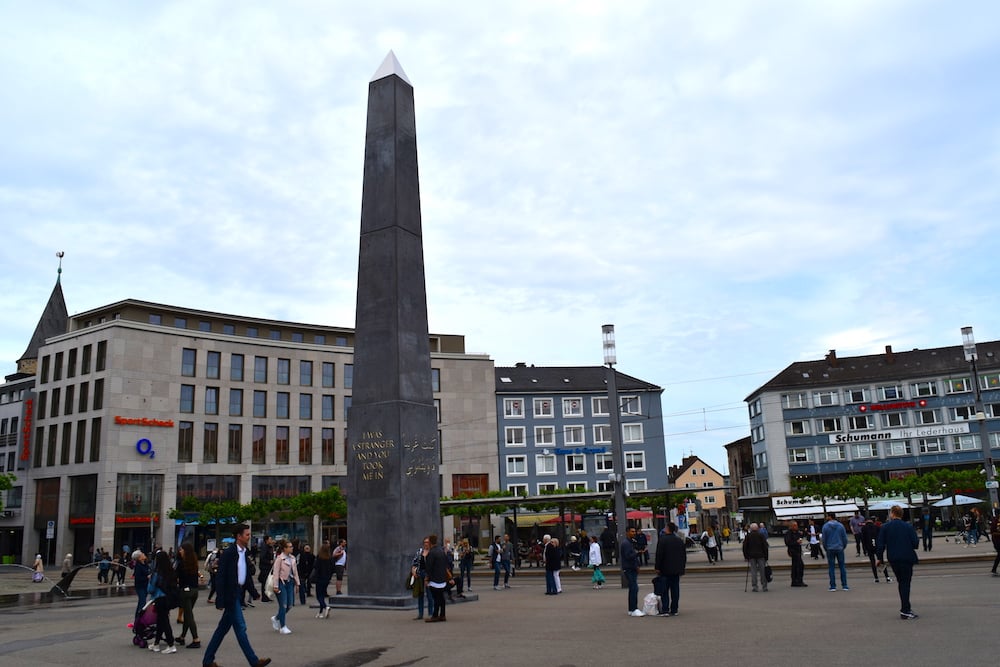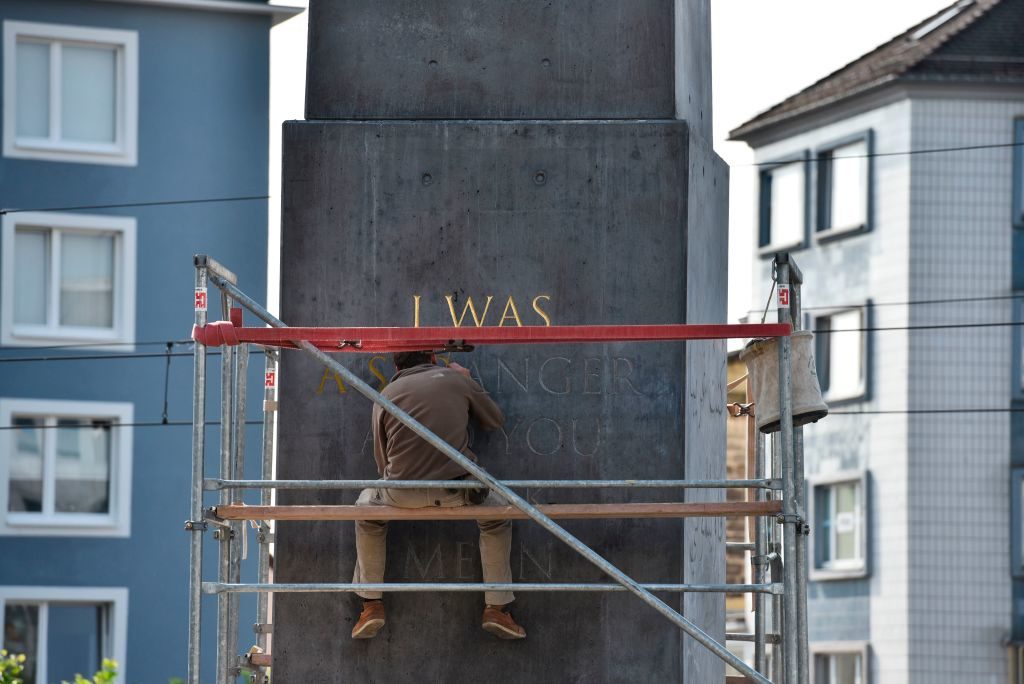Art World
Bowing to Pressure From Right-Wing Politicians, the City of Kassel Will Move Olu Oguibe’s Pro-Immigration Obelisk Outside of the Town Square
The artist criticized officials for moving his work—and praised documenta organizers.

The artist criticized officials for moving his work—and praised documenta organizers.

Henri Neuendorf

The city of Kassel, which hosts the international quinquennial documenta, has finally reached an agreement with artist Olu Oguibe to relocate his contribution to the exhibition’s 14th edition, a giant 54-foot obelisk dedicated to refugees and migrants. The stone monument was erected in the city’s main square during the exhibition and had remained there for more than a year—until it was removed in the early morning hours of October 3 without the artist’s knowledge.
Since being installed, the obelisk, titled Monument to Strangers and Refugees, has become a frequent target of local politicians from Germany’s right-wing, anti-immigration AfD party (Alternative für Deutschland), who objected to the message of acceptance inscribed on its base. The inscription, taken from the Bible’s Matthew 25:35, reads: “I was a stranger and you took me in.” It is written in German, Arabic, English, and Turkish, a different language for each side of the work.

An assistant paints golden letters on Nigerian-born US artist and writer Olu Oguibe’s “Obelisk” during the Documenta 14. Photo credit should read JOHN MACDOUGALL/AFP/Getty Images)
According to the German press agency DPA, city officials on Thursday reached an agreement with the Nigerian-born US artist to move his work to an alternative location close to the city center after months of negotiations. The mayor of Kassel told DPA, “I always stressed that we would continue negotiations about how to proceed with the artwork,” adding that the artist had received a draft contract for the purchase of the monument some time ago.
In a statement to artnet News, the Oguibe said, “The removal of the work and the manner in which it was done shocked many people and elicited deep sadness and a sense of loss among many supporters.” He added that documenta organizers were “viciously and unjustly maligned by the forces of intolerance for putting together a bold, historic, and globally relevant documenta with a humanist vision.”
Oguibe’s gallerist Alexander Koch of Berlin’s KOW Gallery went further. He described the timing of the removal—on Germany’s national holiday commemorating reunification—as “a remarkably insensitive gesture.” He pointed out that Oguibe’s creative decisions regarding the obelisk’s size, color, and orientation were developed specifically for its original location in the town square. But he added that “even though the work was removed from its intended place, against the will of the artist, it will still carry its message.”